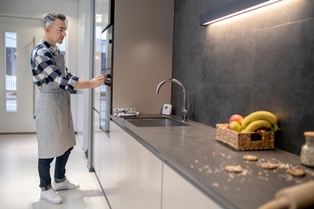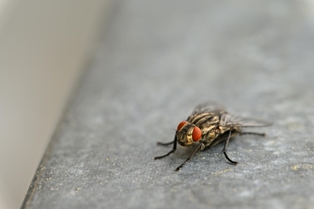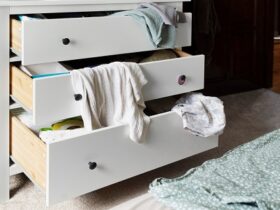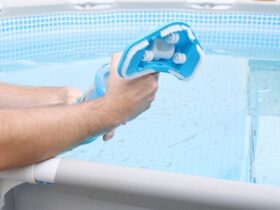Drain flies, also known as sewer gnats or moth flies, can be a pesky nuisance in any household. These tiny insects breed in moist environments, particularly in drains, sewage systems, and decaying organic matter. While they don’t pose any direct health risks, their presence can be unsightly and bothersome. Fortunately, there are several effective methods to eliminate drain flies and prevent their return.
Identify the Source:

The first step in dealing with drain flies is to identify their breeding grounds. Inspect your kitchen and bathroom drains, as well as any other areas where stagnant water may accumulate. Look for adult flies hovering around drains or small larvae clinging to the walls of pipes. Identifying the source will help you target your efforts more effectively.
Clean Drains Thoroughly:
Cleaning your drains thoroughly is paramount in the battle against drain flies. This crucial step involves using tools like a pipe brush or plumbing snake to dislodge any accumulation of organic matter, hair, or debris that serves as a breeding ground for these pests. Once you’ve scrubbed away the buildup, flush the drains with hot water to ensure any remaining residue is washed away, leaving your drains clean and inhospitable to drain flies.
Use Drain Cleaners:
For stubborn clogs and buildup, consider using a commercial drain cleaner. Look for products specifically designed to break down organic matter, such as enzyme-based cleaners. These cleaners can effectively dissolve the gunk that drain flies feed on, eliminating their food source and preventing further infestation.
Boiling Water and Vinegar:
A simple and eco-friendly way to tackle drain flies is by pouring boiling water down the drains followed by a mixture of vinegar and hot water. The hot water will kill any existing larvae or eggs, while the vinegar’s acidic properties will help dissolve buildup and deter future breeding.
DIY Traps:
You can create homemade traps to catch adult drain flies and reduce their population. One popular method is to place a bowl filled with a mixture of apple cider vinegar and a few drops of dish soap near the affected drains. The sweet smell of the vinegar will attract the flies, while the soap will break the surface tension of the liquid, causing the flies to drown.
Biological Drain Treatment:
Biological drain treatments contain beneficial bacteria that break down organic matter and prevent drain fly infestations. These products are safe for plumbing and the environment and can be used regularly to maintain clean, odor-free drains. Follow the manufacturer’s instructions for best results.
Seal Cracks and Gaps:
Prevent drain flies from entering your home by sealing any cracks or gaps around windows, doors, and pipes. Pay special attention to areas where pipes enter the walls or floors, as these are common entry points for pests. Use caulk or expanding foam to seal gaps and keep drain flies out.
Maintain Good Hygiene Practices:
Regular cleaning and maintenance can go a long way in preventing drain fly infestations. Keep sinks, showers, and drains clean and dry to eliminate breeding sites. Dispose of food scraps properly and avoid leaving dirty dishes in the sink overnight. By practicing good hygiene habits, you can reduce the likelihood of drain flies taking up residence in your home.
FAQs about Drain Flies
A: Permanently getting rid of drain flies involves a multi-step approach. Start by identifying and removing their breeding grounds in drains and pipes through thorough cleaning. Use commercial drain cleaners or DIY solutions like boiling water and vinegar to dissolve organic matter. Additionally, seal any entry points and maintain good hygiene practices to prevent future infestations.
A: Drain flies are attracted to moist environments with decaying organic matter, such as food residue and hair, commonly found in drains and sewage systems. Factors like poor drainage, leaks, or stagnant water can create ideal breeding conditions for drain flies, leading to sudden infestations.
A: While bleach can kill drain flies on contact, it’s not the most effective solution for eliminating infestations. Bleach may temporarily reduce their numbers, but it doesn’t address the underlying cause of the problem, which is the buildup of organic matter in drains. Additionally, bleach can be harmful to pipes and may not reach all areas where drain flies breed.
A: Vinegar alone may not effectively kill drain flies, but it can help deter them and break down organic matter in drains. A mixture of vinegar and hot water can be poured down drains to dissolve buildup and create an inhospitable environment for drain flies. However, for complete elimination, it’s best to combine vinegar treatments with thorough cleaning and other preventive measures.
Conclusion:
Dealing with drain flies can be frustrating, but with the right approach, you can eliminate them and prevent future infestations. By identifying the source, cleaning drains thoroughly, using effective treatments, and practicing good hygiene, you can reclaim your home from these pesky pests. With persistence and patience, you can enjoy a fly-free home once again.












Find Us on Socials